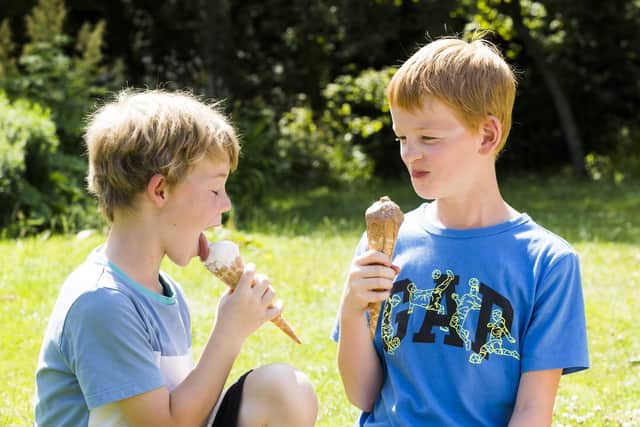Halifax weather: Advice on how stay safe and well during extreme temperatures
and live on Freeview channel 276
Many areas of Yorkshire and the Humber have been experiencing heatwave conditions and, due to prolonged high temperatures, the Met Office has also issued a Heat-Health Alert for the region.
West Yorkshire Prepared, the region’s Local Resilience Forum, has collated some advice on coping in the heat, making the most of the summer weather and most importantly keeping yourselves and others safe.
Advertisement
Hide AdAdvertisement
Hide AdDave Walton, co-Chair of West Yorkshire Prepared, said: “Although many people will be enjoying the high temperatures we’ve been experiencing recently and will be making the most of the summer sunshine, there are many hazards we all need to be aware of and be prepared to respond to, to ensure we all continue to enjoy the sun safely.


"From heat exhaustion and severe sunburn to water incidents and wildfires, there can unfortunately be a number of dangerous outcomes from extreme temperatures if people aren’t properly prepared.”
Key Advice
First and foremost, try not to get too hot in the first place. Aim to keep out of the sun between 11am and 3pm, but if you do need to go out, apply sunscreen, walk in the shade where possible and wear a hat and light, loose-fitting clothes. You should also avoid strenuous outdoor activity. There are many ways to keep cool:
Have plenty of cold drinks and avoid excess alcohol and caffeine. Eat cold foods, particularly salads and fruit with a high-water content
Advertisement
Hide AdAdvertisement
Hide AdTake a cool shower, bath or body wash, sprinkle water over the skin or keep a damp cloth on the back of your neck.
Keep rooms cool by using shades or reflective material outside the windows. If this is not possible, use light-coloured curtains and keep them closed (Note: metallic blinds and dark curtains can make the room hotter).
Always look out for those who may be more vulnerable, such as older people, young children and babies or anyone who may be clinically vulnerable.
If you have concerns of a heat-related illness, check out the advice at www.nhs.uk/conditions, visit your local pharmacy, contact your GP or use the NHS 111 service at 111.nhs.uk. Only call 999 if it is a life-threatening emergency.
Advertisement
Hide AdAdvertisement
Hide AdIf you do get sunburnt, there are treatments you can do at home such as applying aftersun or cooling the skin with a damp towel. Keep out of the sun until you are fully recovered. Be aware that severe sunburn can lead to heat exhaustion or heat stroke.
The increase in temperature is likely to result in more people visiting lakes and rivers in an attempt to cool off.
As tempting as it may be in hot weather, swimming in an unsupervised watercourse such as a reservoir, canal or lake can be extremely dangerous due to hidden hazards such as cold water, underwater obstacles, strong currents and changing depths. Cold water shock can make swimming difficult and cause breathing difficulties and hyperventilation.
Group Manager Andy Rose, from West Yorkshire Fire and Rescue Service, said: “Unfortunately, during periods of warm weather we tend to see more water rescues as people enter canals and rivers to cool down and swim. As appealing as this may seem there are many hidden dangers that have tragically taken lives and I would urge members of the public not to enter the water due the potential unseen hazards and risks.”
Advertisement
Hide AdAdvertisement
Hide AdThere is also an increased risk of wildfires during periods of prolonged hot weather, due to the ground being extremely dry and more people heading out into the countryside. BBQs in unauthorised areas, campfires and discarded cigarettes can all cause fires. The Be Moor Aware campaign, from West Yorkshire Fire and Rescue Service, highlights the severe damage and dangers of wildfires.
Some simple advice to follow is to always dispose of cigarettes responsibly, never light a fire in the countryside, only barbecue in authorised areas and always follow the Countryside Code.
Dale Gardiner, Wildfire Lead Officer for West Yorkshire Fire and Rescue Service, said: “We do tend to see an increase in fires in the countryside whenever the weather picks up. Wildfires can spread very quickly, threatening the safety of people, animals and property. We would ask people to be vigilant, responsible and please do think of the consequences of your actions.”